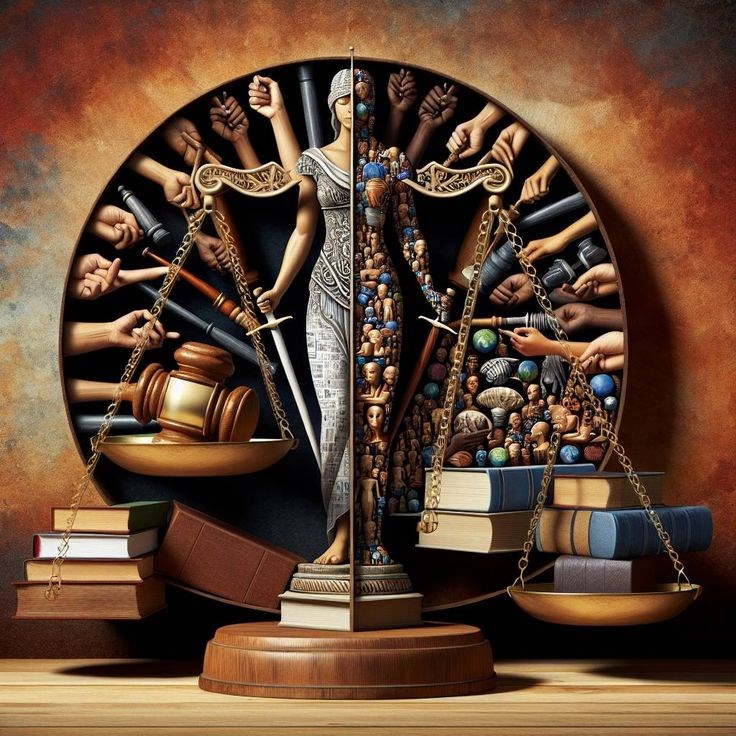
01-Jun-2025 , Updated on 6/1/2025 10:25:01 PM
What's the Primary Goal of Our Justice System?
Ensuring Fair and Impartial Trials
A just legal system is based on the principles of fair and impartial trials which are the cornerstones of safeguarding individual rights and public trust. Neutrality of judges, unbiased jury selection and adherence to due process are required to prevent the miscarriage of justice. Evidence based verdicts should not be overridden by external influences, media sensationalism or preconceived notions. Fairness appears to be based on transparency in legal proceedings, equitable access to legal representation and a strict compliance with ethical standards on the side of judges and lawyers. Equality before the law requires that systemic biases or racial, economic or social, be actively addressed. Principally, if the judiciary is not impartial, the legitimacy of the judiciary is eroded and society loses in confidence. For a legal system that actually serves justice, these principles are non negotiable.
Protecting Society from Harm
The society's safety should be guaranteed while maintaining a balance between prevention, accountability and rehabilitation. Laws against violent crimes, fraud and exploitation must have strict enforcement to prevent and to administer justice. Just as vital is tackling the root causes, like poverty, lack of education, mental health problems which can lead to bad behavior. Community based initiatives, accessible mental health support and rehabilitation programs need to be a part of these effective policies which would lead to a reduction in recidivism. Monitoring threats while respecting privacy rights may be aided by technology. The trust is fostered and there is collective responsibility when there is collaboration among law enforcement, policymakers and citizens. Society requires a proactive approach with regard to punishment of wrongdoing and creating a situation in which people are much less likely to engage in harmful action. All are able to benefit from a just and secure society.
Rehabilitating Offenders When Possible
Rehabilitation is constructive in reducing recidivism and redefining offenders into society. It appears that programs oriented to education, vocational training and psychological support dramatically reduce recidivism. For example, Norway focuses on rehabilitation rather than punishment and has, therefore, one of the lowest crime rates in the world. In order to be effective, rehabilitation has to address root causes, substance abuse, mental health issues or lack of employable skills. Although the public typically feels this should be punished to the hilt, it is long term societal safety that depends on turning these folks back into productive members of society. But rehabilitation should not always be the case as some violent or repeat offenders may need severe punishments. A well balanced justice system ensures both reformation where possible and reintegration of individuals in society. Rehabilitation is by far the best investment and creates safer communities and helps decrease prison overcrowding.
Upholding the Rule of Law
The rule of law is the basic support of a just and equitable society as it promotes accountability, fairness and order. It is that no individual and no institution is above the law and it guarantees citizens’ rights and at the same time ensures social stability. Robust legal framework prevents arbitrary governance, corruption and abuse of power which builds public confidence in institutions. But its effectiveness depends on impartial enforcement and the availability of justice to all irrespective of status. Its credibility is undermined by weak judicial systems or selective application and these result in inequality and unrest. Preservation of the rule of law requires the strengthening of legal institutions, transparency and judicial independence. It serves vital checks on the very fabric of societal progress and democracy and indeed human rights itself.
Delivering Accountability and Closure
Justice requires accountability and closure; it means the acknowledgement and remedying of wrongs. Trust in systems erodes without accountability; victims remain without resolution and cycles of harm persist. Closure, however, is not only to ensure retribution but also by way of transparent processes, making reparation and society acknowledging that something wrong has been done. Timely investigation, fair adjudication and reparative measures need to be built into a legal framework so that dignity is restored. Deepening trauma and legitimizing impunity are delays or denials of accountability. The truth about closure: it takes a lot of work which is why it's hardly ever found in criminal justice or historical injustices or corporate misconduct. Societies can only heal and prevent future violations, by consistently and impartially enforcing consequences. Accountability and closure together complete the road to justice.

Content Writer
Hi, I’m Meet Patel, a B.Com graduate and passionate content writer skilled in crafting engaging, impactful content for blogs, social media, and marketing.
Join Our Newsletter
Subscribe to our newsletter to receive emails about new views posts, releases and updates.
Copyright 2010 - 2026 MindStick Software Pvt. Ltd. All Rights Reserved Privacy Policy | Terms & Conditions | Cookie Policy